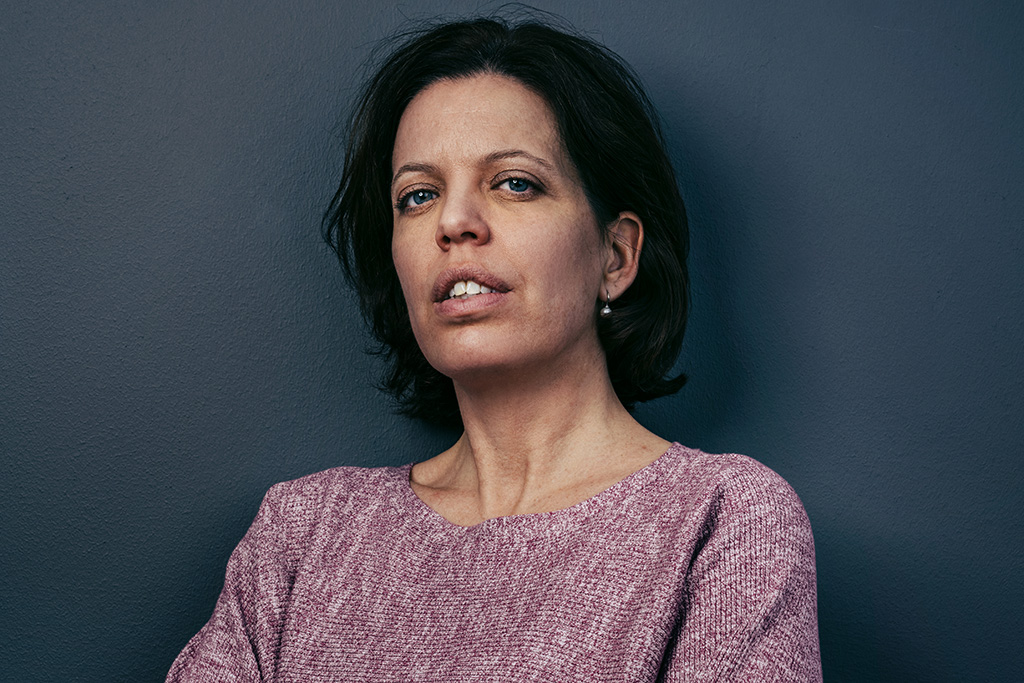WHO employees must be held accountable for their crimes
“We cannot stand by in silence and watch as perpetrators who are employed by international organisations hide in plain sight behind the weak legal protection of women and girls in fragile states,” writes Kvinna till Kvinna’s secretary-general.

Last week the World Health Organisation published an investigation which exposes that their own staff has subjected women and girls in the Democratic Republic of the Congo (DRC) to sextortion (sexual extortion) during the Ebola outbreak of 2018-2020. To make things worse, the perpetrators now seem to be getting away with no more than a dismissal. We cannot stand by in silence and watch as perpetrators employed by international organisations hide in plain sight behind the weak legal protection of women and girls in fragile states.
The WHO-report exposes more than 80 cases of sexual abuse and exploitation and 9 cases of rape. Some cases involve girls as young as 13 years old and almost all instances involve women who are poor and marginalised.
The investigation also shows that the sexual abuse and exploitation was organised by a network of persons in charge of recruiting staff for the WHO Ebola-response in the DRC. It identifies 83 perpetrators acting in three different provinces of the country. In most of the cases women were forced to carry out sexual acts to obtain employment but did not receive employment anyway. In other instances, women did receive employment after carrying out sexual acts and were then forced to continue providing sexual favours to keep the jobs and to collect their pay checks.
What the WHO-employees have put these women and children through is horrendous, but it is unfortunately not a new phenomenon, nor an uncommon one. Especially not in poor and war-torn countries such as the DRC, where both corruption and sexual violence are widespread and where legal protection for women is almost non-existent.
The Kvinna till Kvinna Foundation works in many conflict- and post-conflict countries and we have seen many similar cases throughout the years. This as a very clear example of sexual extortion, also known as “sextortion”. This is a crime which almost never leads to any legal ramifications as it is neither recognised as corruption nor gender-based violence.
Due to a lack of knowledge and a poor understanding of what sextortion really is, the justice systems often think of these cases as “voluntary sexual transactions” rather than acts of violence and extortion through abuse of power. Women subjected to sextortion have commonly been thought of as complicit rather than as victims of a crime and the perpetrators have not been held accountable. However, in the last few years, more and more corruption experts and legislators have recognised that these are crimes which could and should be tried as both corruption cases and cases of gender-based violence—see for example reports from EBA & Tranparency International.
We now hope that the case involving WHO in the DRC will be handled like a sextortion case with legal ramifications for the perpetrators. In a media statement, the secretary-general of the WHO, Tedros Adhanom Ghebryrseus, described the occurrence as “a sickening betrayal of the people we serve”. He also states that it is his top priority to ensure that the perpetrators are not excused and are held accountable. WHO has since informed the media that four of their staff have been fired and two have been put on administrative leave. In addition, they said, the alleged perpetrators of rape will be referred to national authorities in the DRC for investigation.
From what we understand, this means that the very clear sextortion cases will not be investigated as crimes but will at most lead to dismissals. In the year of 2021, we must do better than this. We cannot allow employees at international organisations to exploit the weak legal protection of women and girls in war-torn countries and fragile states.
We demand that WHO hold their staff accountable for these crimes of corruption and gender-based violence and work to ensure that there will be legal ramifications for the perpetrators.
We also demand that WHO and the UN work to prevent sextortion, by including it as a specific form of corruption and gender-based violence in their anti-corruption policies and GBV-policies. Moreover, safe and gender-sensitive reporting mechanisms and whistle-blower protection mechanisms for sextortion cases must be ensured.
At last, we encourage more countries around the world to include sextortion as a specific form of corruption and of gender-based violence in regulations and legislations.
Petra Tötterman Andorff
Secretary-General
The Kvinna till Kvinna Foundation